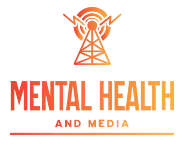In today’s complex healthcare landscape, the role of leadership has never been more critical. Effective wellness management relies not only on clinical expertise but also on strong, visionary leaders who can inspire teams, manage change, and drive innovation. The CMI Level 7 qualification plays a vital part in shaping such leaders, equipping them with the advanced skills needed to enhance both organisational performance and patient care.
The Evolving Role of Healthcare Leadership
Modern healthcare leaders face challenges that extend far beyond traditional patient management. They must navigate a constantly changing environment marked by technological advancements, policy shifts, and growing patient expectations. The emphasis has moved towards holistic wellness—integrating physical, mental, and social health within care delivery systems.
Leadership in this space requires not just compassion but also a deep understanding of strategic planning, quality improvement, and people management. Advanced qualifications prepare professionals to handle these multifaceted responsibilities with confidence and clarity.
How Advanced Learning Builds Strategic Thinking
An advanced qualification such as the CMI Level 7 encourages leaders to think strategically rather than reactively. This level of study challenges individuals to assess the broader healthcare system, identify gaps in wellness delivery, and create sustainable solutions.
Strategic thinking enables leaders to anticipate challenges like resource limitations, workforce burnout, and patient engagement barriers. It helps them design wellness initiatives that are both innovative and measurable, ensuring that every decision made contributes to long-term patient and organisational wellbeing.
Moreover, the analytical and critical thinking skills gained from such qualifications help leaders interpret data effectively—an increasingly valuable ability in an era dominated by evidence-based care and digital transformation.
Strengthening People and Performance Management
At the core of every successful healthcare organisation are its people. From nurses and physicians to administrative staff, the morale and motivation of healthcare teams directly influence patient outcomes. Advanced leadership qualifications focus heavily on the human side of management—developing emotional intelligence, communication skills, and conflict resolution abilities.
A leader who has undergone advanced training can identify performance issues early, mentor emerging talent, and create a workplace culture where well-being is prioritised. These leaders understand that supporting staff wellness is just as vital as supporting patient wellness. By promoting balance, inclusivity, and respect, they lay the foundation for a thriving organisational culture.
Innovation and Adaptability in Wellness Management
Healthcare systems today are under constant pressure to adapt—whether through integrating digital tools, improving accessibility, or responding to public health crises. Advanced leadership education cultivates the flexibility required to manage such transformation effectively.
Through exposure to real-world case studies and problem-solving projects, learners develop a mindset of continuous improvement. They learn to approach challenges creatively, make informed decisions under pressure, and lead change initiatives with confidence. This adaptability not only enhances wellness management but also ensures that healthcare systems remain resilient in times of uncertainty.
Enhancing Collaboration and Communication
One of the most overlooked aspects of effective leadership in wellness management is communication. Advanced qualifications emphasise collaborative leadership, where departments work cohesively to achieve shared wellness goals.
Leaders trained at higher levels can bridge communication gaps between clinical and administrative teams, ensuring that everyone understands and aligns with the organisation’s vision. Whether coordinating multi-disciplinary care plans or negotiating resource allocation, clear and empathetic communication remains at the heart of progress.
When collaboration improves, so does patient satisfaction. Seamless teamwork leads to faster decision-making, fewer errors, and a more personalised approach to wellness.
Driving Measurable Wellness Outcomes
Ultimately, the purpose of any leadership qualification in healthcare is to drive measurable improvement. A well-trained leader doesn’t just maintain existing systems—they transform them. Advanced qualifications help professionals design metrics that evaluate wellness outcomes, assess the effectiveness of interventions, and guide continuous development.
From reducing readmission rates to increasing patient satisfaction scores, leaders equipped with advanced management skills know how to connect strategy with tangible results. They understand that wellness management is a dynamic process—requiring ongoing evaluation, reflection, and innovation.
Conclusion
Empowering healthcare leaders through advanced qualifications is not just a matter of career progression—it is an investment in the future of global wellness. The CMI Level 7 qualification offers a pathway for experienced professionals to refine their leadership approach, enhance operational efficiency, and foster a culture of care that prioritises both patients and staff.
As healthcare continues to evolve, the demand for visionary leaders will only grow. Those equipped with advanced knowledge and leadership acumen will be best positioned to guide their organisations through the challenges ahead—ensuring that wellness management remains effective, compassionate, and future-ready.




